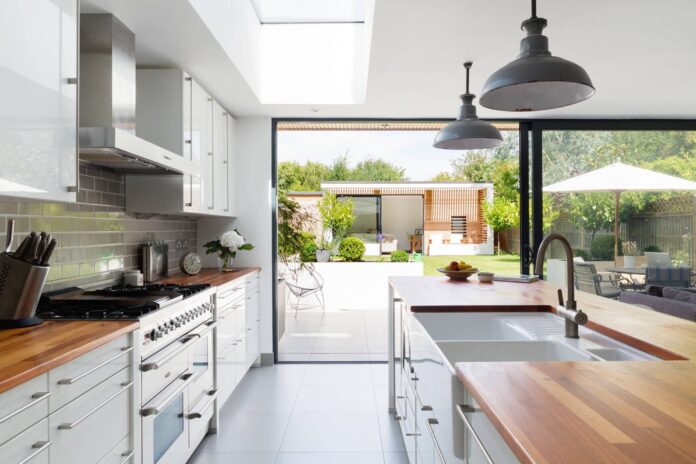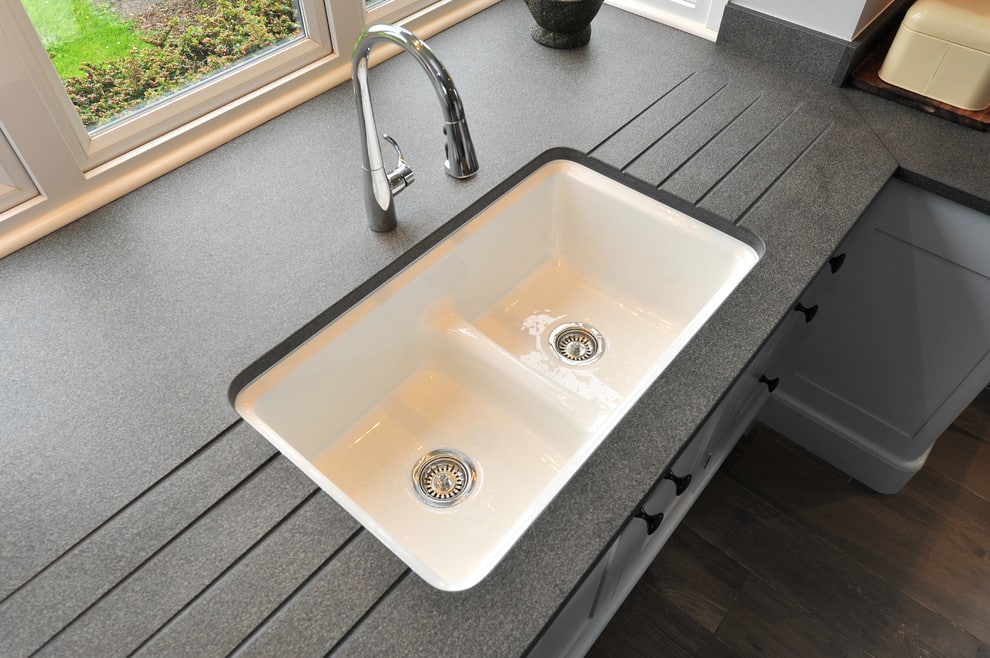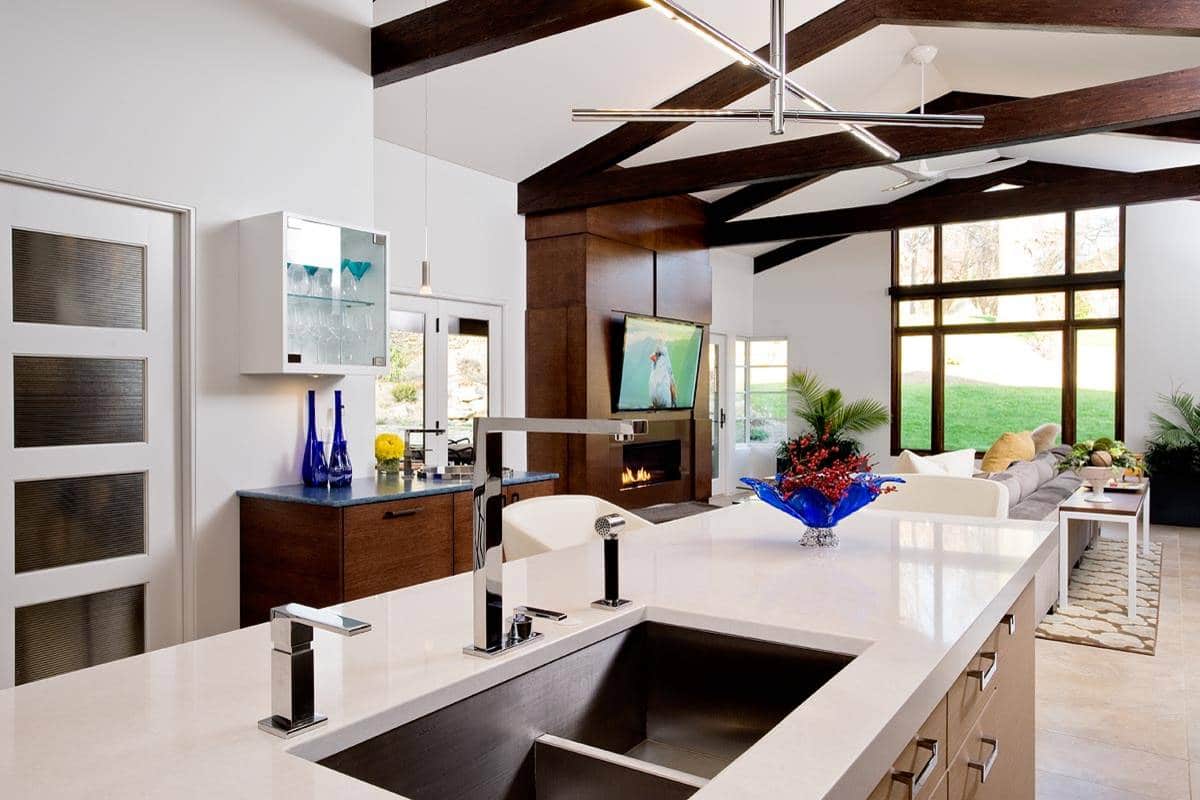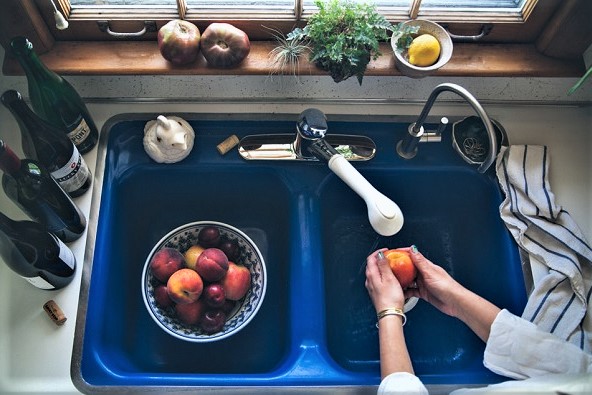Draining the mystery around sinks
Not much thought is given to the sink. When we think about preparing meals, many associate labor with the kitchen. And yet, it’s the sink that really does the brunt of the work, isn’t it? What would a kitchen be without it? Non-functional, probably…
What Type of Sink is Good For The Kitchen
Sinks last a long time, often over fifteen years, but eventually become too worn. First, the finish dulls, then starts to chip, and leaks appear around the drain’s rim.
If you’re remodeling your kitchen, you’ll want to replace the entire assembly, sink, and faucet. They are available from various manufacturers in various materials and styles. You can get porcelain-on-cast-iron, stainless steel, or other newer materials.
Sinks are typically the cheapest part of a kitchen, despite there being “high-end” models in the $1000+ range. But you can expect a quality sink to start at around $200.
There is an overwhelming array of options. Single and multi-bowls, various depths and designs… you’ll first need to get the size right.
Obviously, you want to match the diameter of the space, but consider that a large multi-basin will dominate a smaller kitchen if your kitchen is less than 150 square feet, a standard 22” x 24” single bowl is recommended (per the National Kitchen & Bath Association).
Naturally, larger kitchens can 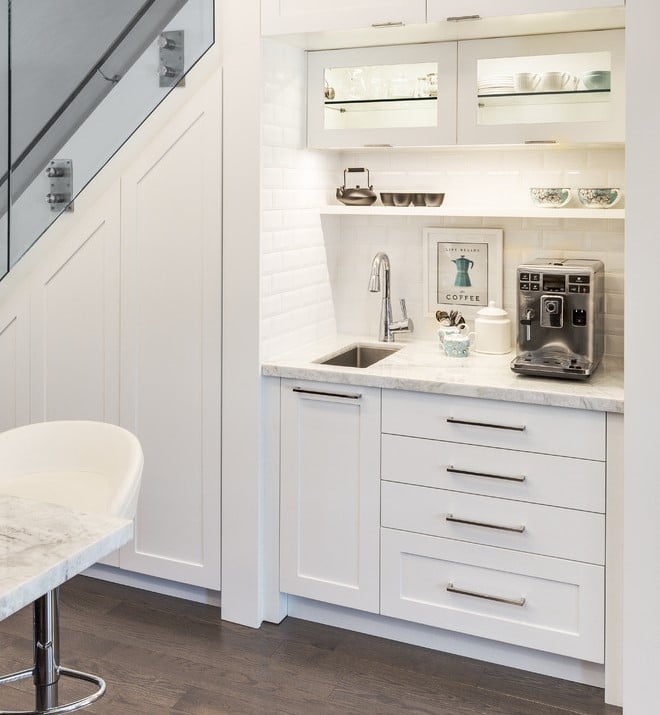
Starting at around $200, you’ll pay more for multi-bowls featuring contrasting depth sinks.
Kitchen designers often recommend one large main sink plus a smaller one (a “bar sink”) for large kitchens. A second sink is not recommended unless there are two cooks in the home who often work simultaneously.
The plumbing upgrade to accommodate such a setup will cost around $400 in itself.
After you’ve determined the ideal size and bowl arrangement, you need to pick the type of mounting to use.
This is a practical decision that also affects aesthetics. You’ll also need to specify the number of holes in the sink deck. Depending on how many accessories (spray hoses, soap dispensers) you have—along with the faucet—the number can typically vary between one and five.
What color do you want your sink to be? It’s nice to have an accent that complements the kitchen’s color theme. Almost unfairly, you will actually pay 15 to 40 percent more for anything other than white. You also have to pay a separate cost for the drain strainer. A quality stainless steel one runs only $10 to $15.
Be sure to match the strainer to the sink; the various styles aren’t necessarily compatible. Make your choices carefully; you’ll be living with them for a long time. A really good sink can last as long as you want – with the proper care.
And what of faucets—are they all the same? Do yourself a favor and stick with a reputable brand. You may spend more than $125, but you can be assured of quality and lead-free water delivery. There are quite a few styles, finishes, and features to choose from here as well.
Currently, among the most popular faucets are single-handed models with pull-out spouts. They’re available in different finishes and are perfect for cleaning produce and the sink. Stainless steel spout hoses aren’t likely to kink up but will run you about $325.
Pay a little extra if you want a water filter installed in the faucet. As far as finishes, chrome has long been a favorite. It’s easy to clean and quite durable.
Polished brass and satin nickel finishes resist abrasive cleaners and are becoming popular options. After you’ve signed off on the style and finish, check that your faucet features washerless operation, which could be based on ball, cartridge, or ceramic disk valves. It’s also nice to have a spout that rotates 180 degrees.
Lastly, you must figure out how and where the sink will be attached to the countertop. Do this before ordering your new basin. An easy option is a self-rimming sink, taking only an hour to install. Clips and screws will keep lighter varieties in place, while the sheer weight of the larger self-rimming sinks will do the work of providing stability.
Another just as popular option is the under-mount sink. They’re sleek and solid and facilitate easy counter-to-sink wiping. You may even combine bowls of different shapes and sizes. They are designed to work with solid materials like granite, as the counter material is exposed. They do take twice as long as the self-rimming sink, but that’s really a non-issue when you consider the life of the product.

